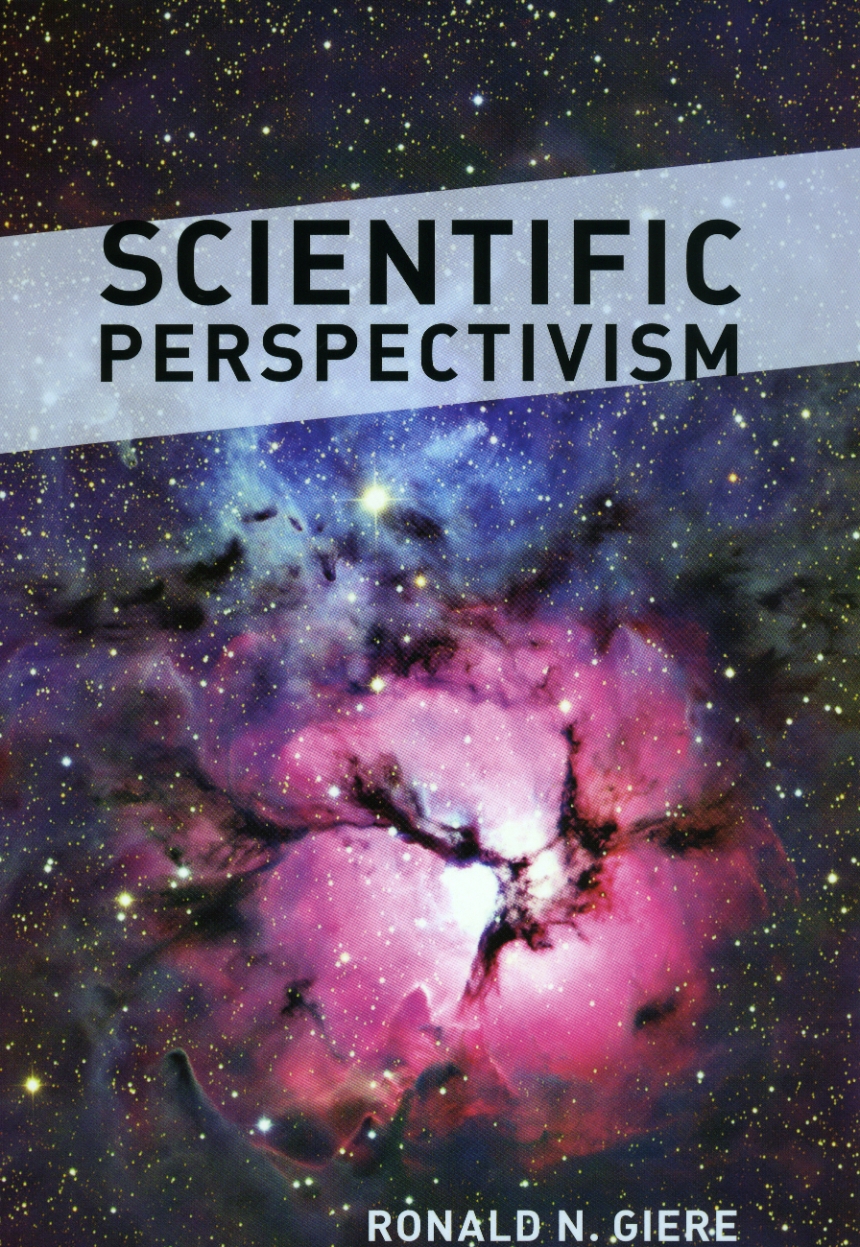Scientific Perspectivism
Many people assume that the claims of scientists are objective truths. But historians, sociologists, and philosophers of science have long argued that scientific claims reflect the particular historical, cultural, and social context in which those claims were made. The nature of scientific knowledge is not absolute because it is influenced by the practice and perspective of human agents. Scientific Perspectivism argues that the acts of observing and theorizing are both perspectival, and this nature makes scientific knowledge contingent, as Thomas Kuhn theorized forty years ago.
Using the example of color vision in humans to illustrate how his theory of “perspectivism” works, Ronald N. Giere argues that colors do not actually exist in objects; rather, color is the result of an interaction between aspects of the world and the human visual system. Giere extends this argument into a general interpretation of human perception and, more controversially, to scientific observation, conjecturing that the output of scientific instruments is perspectival. Furthermore, complex scientific principles—such as Maxwell’s equations describing the behavior of both the electric and magnetic fields—make no claims about the world, but models based on those principles can be used to make claims about specific aspects of the world.
Offering a solution to the most contentious debate in the philosophy of science over the past thirty years, Scientific Perspectivism will be of interest to anyone involved in the study of science.
170 pages | 12 color plates, 29 line drawings | 6 x 9 | © 2006
History: History of Ideas
Philosophy: Philosophy of Mind
Physical Sciences: History and Philosophy of Physical Sciences
Reviews
Table of Contents
List of Illustrations
Acknowledgments
1. Scientific Knowledge
What Is the Problem?
Objective Realism
Constructivism
Naturalism
Perspectivism
Retrospect
2. Color Vision
Introduction
Basic Color Science
Color Subjectivism
Color Objectivism
Comparative Color Vision
Color Perspectivism
The Philosophy of Color
A Final Question
3. Scientific Observing
Introduction
Astronomy in Color
Deep Space from the Perspective of the Hubble Telescope
The Milky Way in Gamma Ray Perspectives
Conclusions within Perspectives
Imaging the Brain
Instrumental Perspectives
4. Scientific Theorizing
Introduction
Representing
Theories
Laws of Nature
Fitness
Maps
Truth within a Perspective
Perspectives and Paradigms
Scientific Kinds
Perspectival Realism
The Contingency Thesis Revisited
5. Perspectival Knowledge and Distributed Cognition
Introduction
Distributed Cognition
Scientific Observation as Distributed Cognition
Models as Parts of Distributed Cognitive Systems
Computation in Scientific Distributed Cognitive Systems
Agency in Scientific Distributed Cognitive Systems
Why Distributed Cognition?
Distributed Cognition and Perspectival Knowledge
Notes
References
Index
